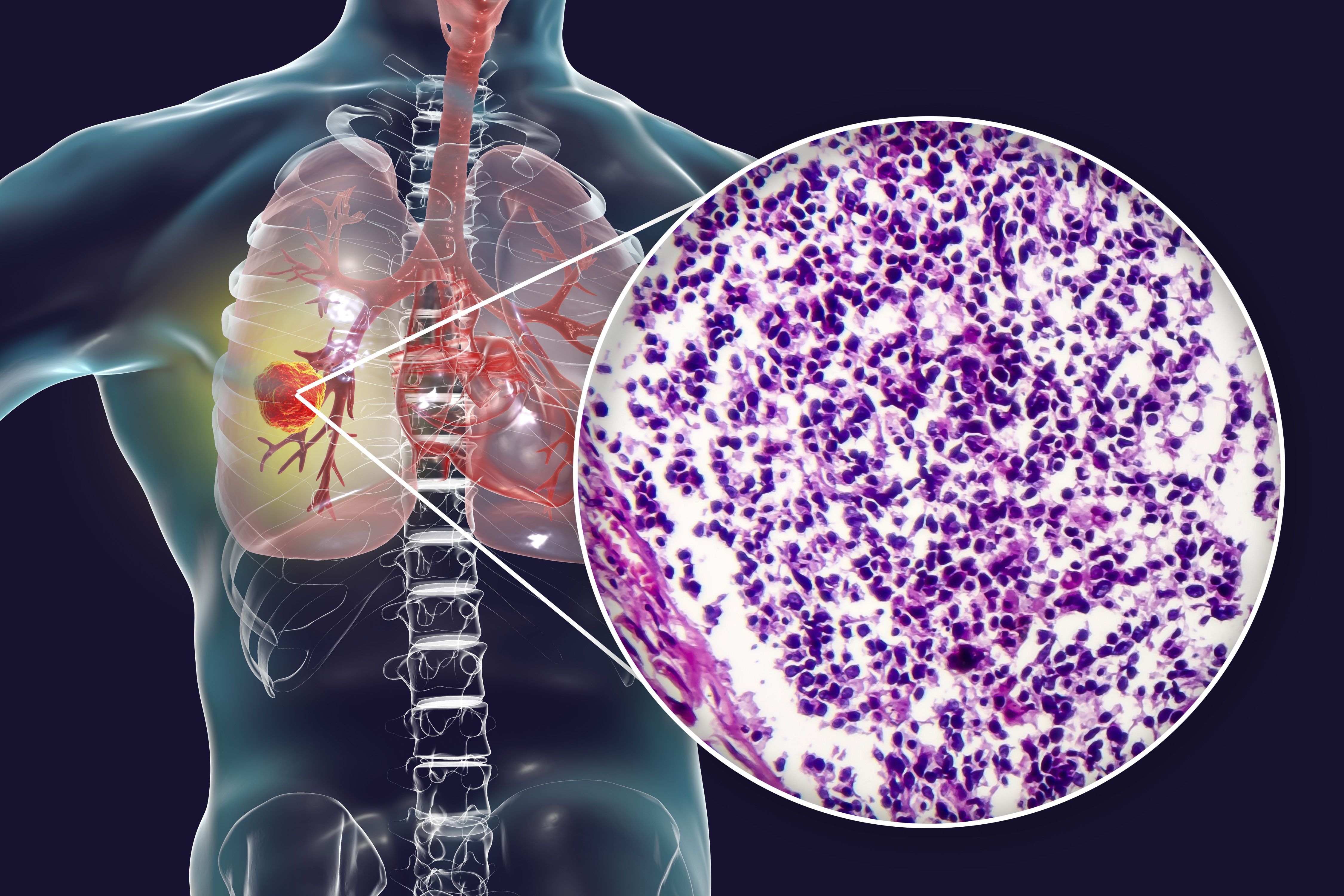Domvanalimb Combinations Show Clinically Meaningful Efficacy in NSCLC
Clinically meaningful differentiation across efficacy measures were seen in patients administered domvanalimb in combination with zimberleimab or etrumadenant vs zimberelimab monotherapy.

Patients with first-line non–small cell lung cancer (NSCLC) given domvanalimb combined with zimberelimab (AB122) or zimberleimab plus etrumadenant (AB928) continued to have clinically meaningful differentiation across all efficacy measures compared with those in the anti-PD-1 zimberelimab monotherapy arm, according to findings from the fourth interim analysis of the phase 2 ARC-7 study (NCT04262856).1
This interim analysis of the open-label, randomized study evaluated the efficacy of patients with NSCLC who had at least 13 weeks of potential follow-up and were eligible for at least 2 imaging scans (n = 133).
In both arms where domvanalimab was administered, patients continued to have clinically meaningful differentiation vs patients given zimberelimab alone, including in objective response rates (ORR), progression-free survival (PFS) and 6-month landmark PFS.
“The efficacy measures observed, including PFS, reinforce confidence in the TIGIT pathway. The interim results show that combining two checkpoint inhibitors, an anti-TIGIT and an anti-PD1, delivered added benefit beyond anti-PD-1 monotherapy in this setting,” said Melissa L. Johnson, MD, director of lung cancer research, Sarah Cannon Research Institute at Tennessee Oncology, and lead investigator for the ARC-7 study, in the press release. “These data are important for the lung cancer research field, and I look forward to presenting the dataset at the upcoming virtual ASCO [American Society of Clinical Oncology] Monthly Plenary on December 20th.”
The multicenter, 3-arm, phase 2 ARC-7 study aims to evaluate the safety and efficacy of the anti-TIGIT antibody domvanalimab in combination with anti-PD-1 antibody zimberelimab vs domvanalimab plus zimberelimab and etrumadenant vs zimberelimab alone in a total of 150 patients with first-line metastatic NSCLC.2 Patients are randomized in a 1:1:1 ratio across each of the 3 study arms. Patients who progress on zimberelimab monotherapy may cross over to receive treatment with the triplet.
Enrollment is open to patients aged 18 years and older with histologically confirmed, treatment naïve, metastatic squamous or non-squamous NSCLC with documented high PD-L1 expression and no EGFR or ALK genomic tumor aberrations. Patients must have a PD-L1 tumor proportion score ≥50%, an ECOG performance status score of 0 or 1, at least 1 measurable lesion per RECIST v1.1, and adequate organ and marrow function.
At the time of the fourth interim analysis, 133 patients had at least 13 weeks of potential follow-up and were eligible for at least 2 tumor assessments. Investigators are evaluating the co-primary end points of objective response rates (ORR) and progression-free survival (PFS) as well as the secondary end points of duration of response, disease control rate, overall survival, and safety.
Among both arms which included patients who received domvanalimab, clinically meaningful differentiation was seen compared with patients who were administered zimberelimab alone across efficacy measures, including in ORR, PFS, and 6-month landmark PFS.
Additionally, no unexpected safety signals were observed across any of the 3 study arms and both arms containing domvanalimab were generally well tolerated at the time of data cutoff. The overall safety profiles for each individual molecule were also consistent with their known safety profiles to date.
Expanded results from this fourth interim analysis and an exploratory analysis examining 12 patients who crossed over from receiving zimberelimab monotherapy to triplet therapy will be presented at the December 2022 ASCO Monthly Plenary Series.
“These results strengthen our belief in the potential of domvanalimab and the promise of our anti-TIGIT approach to meaningfully impact the outlook for people with metastatic lung cancer,” said Bill Grossman, MD, PhD, senior vice president, therapeutic area head of Gilead Oncology, in the press release. “We will continue to accelerate our TIGIT development program with Arcus, with 4 ongoing registrational studies in NSCLC and upper [gastrointestinal] malignancies.”